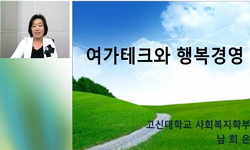본 연구는 밀레니얼세대 부모의 생활시간사용에서 나타나는 특성과 이들의 시간빈곤을 결정하는 요인을 파악하기 위하여 통계청 생활시간조사 자료(2019년)를 사용하여 어머니 집단과 어머...
http://chineseinput.net/에서 pinyin(병음)방식으로 중국어를 변환할 수 있습니다.
변환된 중국어를 복사하여 사용하시면 됩니다.
- 中文 을 입력하시려면 zhongwen을 입력하시고 space를누르시면됩니다.
- 北京 을 입력하시려면 beijing을 입력하시고 space를 누르시면 됩니다.

밀레니얼세대 일하는 부모의 생활시간사용의 특성과 주관적 시간빈곤 결정요인 = A Study on the Time Use and Subjective Time Poverty of Millennial Working Mothers and Fathers in Korea
한글로보기https://www.riss.kr/link?id=A109407320
- 저자
- 발행기관
- 학술지명
- 권호사항
-
발행연도
2024
-
작성언어
Korean
-
주제어
가족돌봄 ; 시장노동 ; 가사노동 ; 여가 ; 가족정책 ; family care ; time poverty ; gender differences ; leisure time ; family policy
-
등재정보
KCI등재
-
자료형태
학술저널
-
수록면
1-12(12쪽)
- DOI식별코드
- 제공처
-
0
상세조회 -
0
다운로드
부가정보
국문 초록 (Abstract)
본 연구는 밀레니얼세대 부모의 생활시간사용에서 나타나는 특성과 이들의 시간빈곤을 결정하는 요인을 파악하기 위하여 통계청 생활시간조사 자료(2019년)를 사용하여 어머니 집단과 어머니가 아닌 집단(비어머니), 아버지 집단과 아버지가 아닌 집단(비아버지)을 비교하였다(n=2,677). 주요 연구결과는 다음과 같다. 첫째, 하루 생활시간을 크게 필수시간(수면시간, 식사및간식시간 등), 의무시간(시장노동시간, 가정관리시간, 가족돌봄시간, 통근시간, 학습시간 등), 여가시간(교제및참여시간, 문화및관광시간, 미디어이용시간, 스포츠및레포츠시간 등)으로 분류할 때, 밀레니얼세대 부모집단 즉, 어머니와 아버지는 비어머니와 비아버지보다 의무시간은 길고 여가시간은 짧은 것으로 나타났으며, 이때 어머니는 아버지보다 의무시간은 길고 여가시간은 짧았다. 둘째, 어머니와 비어머니 집단 간 생활시간사용을 비교하면, 의무시간의 경우 어머니가 비어머니보다 가정관리와 가족돌봄에 더 긴 시간을, 시장노동, 통근에 더 짧은 시간을 사용하였다. 여가시간은 모든 유형에서 어머니의 시간이 비어머니의 시간보다 짧았다. 아버지와 비아버지의 의무시간 사용에서 시장노동시간과 가족돌봄시간은 아버지가 비아버지보다 더 길었고, 모든 유형의 여가시간에서 어머니와 마찬가지로 비아버지의 시간보다 짧았다. 셋째, 집단별로 주관적 시간빈곤에 영향을 미치는 변수를 보면, 모든 집단에서 유일하게 공통으로 영향을 주는 변수는 건강상태였다. 어머니 집단에서만 유의한 변수는 돌봄필요가구원수인 것으로 나타났고, 아버지 집단에서만 유의한 변수는 나타나지 않았다. 성역할 인식은 비어머니와 비아버지 집단에서만 유의한 영향을 미치는 변수였다. 어머니와 비어머니 집단에만 공통으로 영향을 미치는 변수는 없었지만, 아버지와 비아버지 집단에만 공통으로 영향을 주는 변수는 가정관리시간과 스포츠·레포츠시간이었다. 통근시간은 비아버지 집단에만 영향을 주는 변수로 나타났다. 본 연구를 통해 밀레니얼세대 부모를 위한 젠더관점의 정책적 접근이 유효함을 알 수 있으며, 이들이 같은 세대의 비어머니 또는 비아버지에 비해 부족한 여가시간을 확보할 수 있도록 정책적 지원이 필요함을 제언하였다.
다국어 초록 (Multilingual Abstract)
This study investigates the time use patterns and determinants of time poverty among millennial parents in South Korea. Using the 2019 Time Use Survey data from Statistics Korea(n=2,677), we compared mothers with non-mothers and fathers with non-fathe...
This study investigates the time use patterns and determinants of time poverty among millennial parents in South Korea. Using the 2019 Time Use Survey data from Statistics Korea(n=2,677), we compared mothers with non-mothers and fathers with non-fathers. The main findings are as follows: First, daily time was categorized into necessary time(sleeping, eating, etc.), compulsory time(paid work, household chores, childcare, commuting, studying, etc.), and leisure time (socializing, cultural activities, media use, sports and leisure, etc.). millennial parents (mothers and fathers) spent more time on compulsory activities and less time on leisure activities than their non-parent counterparts. Especially, mothers had longer compulsory time and shorter leisure time than fathers. Second, comparing time use between mothers and non-mothers, mothers spent more time on household chores and childcare, while spending less time on paid work and commuting. Mothers had less time for all the leisure activities compared to non-mothers. Fathers spent more time on paid work and childcare than non-fathers, and like mothers, they had less time for all leisure activities. Third, health status was the only common factor influencing subjective time poverty across all groups. The number of household members requiring care was a significant factor only for mothers, while no significant factors were found only for fathers. Gender role perception significantly influenced time poverty only for non-mothers and non-fathers. No common factors were found between mothers and non-mothers, while for fathers and non-fathers, time spent on household chores and sports/leisure activities were common influencing factors. Commuting time was a significant factor only for non-fathers. These findings suggest the need for gender-sensitive policy approaches to support millennial parents. Policies should aim to help millennial parents obtain more leisure time, which they lack compared to non-parents of the same generation.
동일학술지(권/호) 다른 논문
-
은퇴자의 소비생활 특성과 경제적 만족도 -일본의 60대 이상 은퇴자 조사 자료를 이용하여-
- 한국가족자원경영학회
- 이수진
- 2024
- KCI등재
-
LDA 토픽 모델링을 활용한 ʻʻ건강가정ʼʼ 연구동향 분석: 제1차~제4차 건강가정기본계획 시기를 중심으로
- 한국가족자원경영학회
- 이현아
- 2024
- KCI등재
-
- 한국가족자원경영학회
- 정순둘
- 2024
- KCI등재
-
미취업 장애인 1인가구의 경제적 어려움이 일상생활만족도에 미치는 영향: 장애수용정도의 매개효과
- 한국가족자원경영학회
- 박수선
- 2024
- KCI등재




 ScienceON
ScienceON eArticle
eArticle






